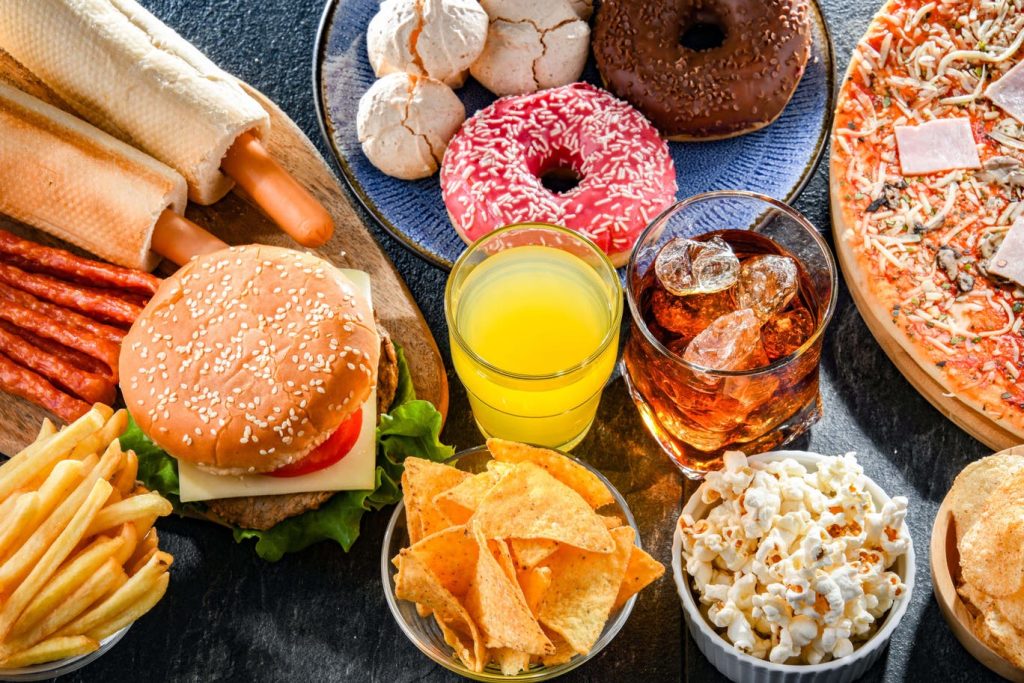A new study revealed that the huge number of death recorded in United Kingdom (UK) may be as a result of consuming ultra-processed foods (UPFs).
UPFs are food product that contains various and additives ingredients not typically found in home such as ice cream, processed meats, crisps, mass-produced bread, some breakfast cereals, biscuits, and fizzy drinks.
Due to health issues that come after the excessive consumption of UPFs, such as obesity, heart disease, and cancer, including death, experts in the study published in the American Journal of Preventive Medicine urged the government to issue recommendations on the consumption of UPFs.
In the research, experts noted that UPFs which usually contains fat, salt, sugar, and additives, lacks nutritional benefits and more of less nutrition options.
As the mortality rate soars high, experts wonder why health issues are on the increase and their correlation with UPFs, if it is a result of people consuming less nutritional foods that are not prepared at home.
Read Also: King Charles hospitalize after cancer treatment side effects
Data retrieved from eight countries showed that in the UK, UPFs reached 53 per cent of people’s energy consumption when compared to 55 per cent recorded in the US, which is the second highest in the study.
According to their statistics, UPFs are attributed to early death, scaling from 4 per cent to 14 per cent in the UK and US, suggesting that about 17,781 premature deaths recorded between 2018 and 2019 could be as a result of UPFs.
Eduardo Nilson, the lead investigator of the study from the scientific body the Oswaldo Cruz Foundation in Brazil, highlighted the implications of the industrial processing and several ingredients. Nilson said, “UPFs affect health beyond the individual impact of a high content of critical nutrients…”
“So assessing deaths from all causes associated with UPF consumption allows an overall estimate of the effect of industrial food processing on health,” Nilson added.
Dr Nilson explained the study revealed that each 10 per cent increase in UPF diet consumption increases the risk of death by 3 per cent.
Stephen Burgess, statistician in the MRC Biostatistics Unit at the University of Cambridge, said, “This type of research cannot prove that consumption of ultra-processed foods is harmful, but it does provide evidence linking consumption with poorer health outcomes,” he said.
“It is possible that the true causal risk factor is not ultra-processed foods but a related risk factor such as better physical fitness – and ultra-processed foods are simply an innocent bystander.
“But when we see these associations replicated across many countries and cultures, it raises suspicion that ultra-processed foods may be more than bystanders.”
While acknowledging the health implications arising from the consumption of diets higher in calories, fat and sugar, which possibly lead to premature death, Nerys Astbury, associate professor from the University of Oxford, said, “This study adds to the body of evidence on the association between UPF and ill health and disease.”
“However, many UPF tend to be high in these nutrients, and studies to date have been unable to determine with certainty whether the effects of UPF are independent of the already established effects of diets high in foods which are energy dense and contain large amounts of fat and sugar.
“The authors of the study conclude that advice to reduce UPF consumption should be included in national dietary guideline recommendations and in public policies.
“However, rushing to add recommendations on UPF to these recommendations is not warranted based on this study, in my opinion.”
While explaining how the Nova system in the human body works when it comes to how food is processed, she stated, “More research is needed to ascertain a causal link between UPF and disease and to establish the mechanisms involved.”

